You have been hired by Specialty Hardware Incorporated to document the layout of the network. Complete the following tasks: Complete the network topology shown in the graphic by dragging the labels below with the appropriate router types, interface types, and IP addresses to the graphic . Find the information you need by using the router console attached to the R-CENTER router.
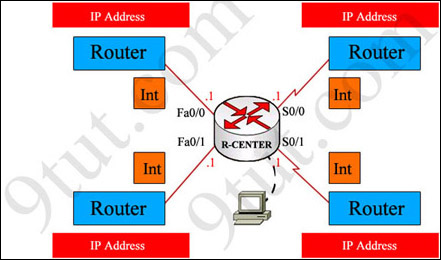
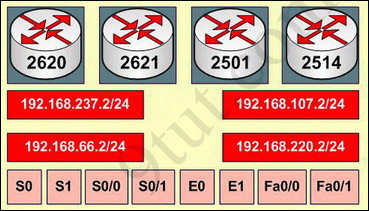 Answer and explanation:
Answer and explanation:
This is the simplest lab question in four labs you see in the real CCNA exam. First we should identify the types of these routers by using the show cdp neighbors command:
 There are 3 columns we should pay more attention to:
There are 3 columns we should pay more attention to:
+ Local Interface: the interface on the device you are using “show cdp neighbors” command. In this case it is the interface of R-CENTER router
+ Platform: the platform of neighbor device
+ Port ID: the neighbor device’s port or interface on which the CDP packets are multicast
From the exhibit, the “Local Interface”, “Platform” and “Port ID” columns, we can identify where these four routers should be placed and their corresponding associated ports
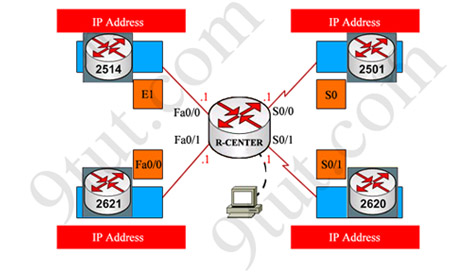 Finally, use the show running-config command to find out the ip addresses of four interfaces on R-CENTER
Finally, use the show running-config command to find out the ip addresses of four interfaces on R-CENTER
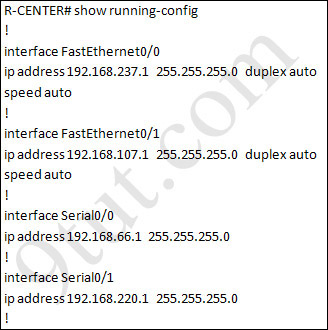 And we can easily assign corresponding ip addresses to four neighbor routers, which are on the same network with R-CENTER router’s interfaces
And we can easily assign corresponding ip addresses to four neighbor routers, which are on the same network with R-CENTER router’s interfaces
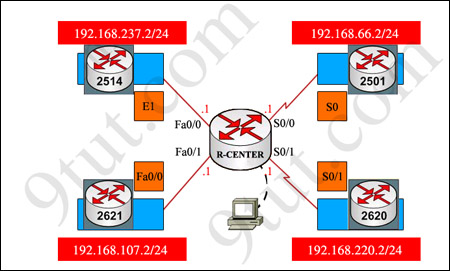 Please remember in the real CCNA Exam the routers’ types, ip addresses and interfaces may be different! So make sure you understand how it works.
Please remember in the real CCNA Exam the routers’ types, ip addresses and interfaces may be different! So make sure you understand how it works.


This is the simplest lab question in four labs you see in the real CCNA exam. First we should identify the types of these routers by using the show cdp neighbors command:

+ Local Interface: the interface on the device you are using “show cdp neighbors” command. In this case it is the interface of R-CENTER router
+ Platform: the platform of neighbor device
+ Port ID: the neighbor device’s port or interface on which the CDP packets are multicast
From the exhibit, the “Local Interface”, “Platform” and “Port ID” columns, we can identify where these four routers should be placed and their corresponding associated ports


